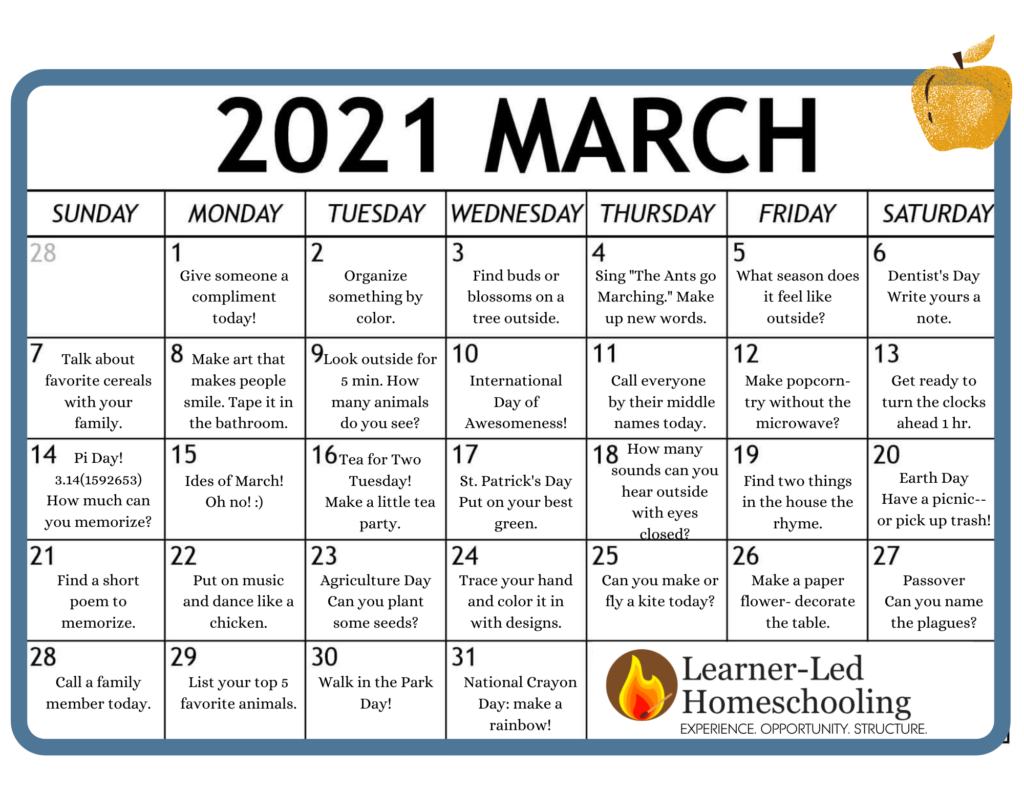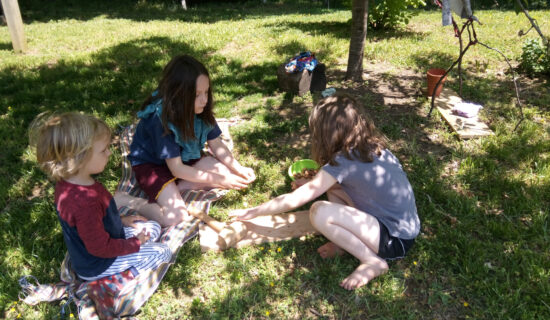Five-Minute Mind Sparks are ways to broaden the range of things that we think about on a day-to-day basis and offer the OPPORTUNITY for new EXPERIENCE. The calendar provides some mild STRUCTURE.

Offer the calendar to your reading learners or read it together for a daily dose of fun and inspiration. Young teens will find humor in the random ideas to engage themselves and make it their own.
Sign up here to get a new calendar every month, filled with quick and sparky ideas specifically chosen for each day.
Favorite High-Interest Resources
Every month I share a few resources that are great for learner-led homeschoolers. Here are this month’s picks:
Animals by the Numbers book
Every member of our family has spent multiple days looking at this highly graphic book full of awesome facts about animals. How many more ants than humans there are, longest horns, most poisonous…Great library find, but would be worth buying for families interested in animals or cool facts.
John Conway’s Game of Life
No need to understand the deep mathematics for learners of all stripes to enjoy creating the initial configuration patters and watching this Turing machine automate. You only need to know the basic rules, which are that any live cell with two or three live neighbors (out of it’s eight total neighbors) survives and any dead cell with three live neighbors becomes a live cell. All other live cells die in the next generation. Make a pattern, hit run, and see what happens! It’s very cool to watch. The mathematically minded who like patterns (think: chess players) will spend hours.
Ideas and Hints for Homeschooling
Scheduling
How our homeschool day looks varies a lot. We’ve used many schedules over the years. It’s not that we haven’t found one that works, it’s just that nothing works forever. This is part of life, especially with growing wees who are leading their own learning to some degree. So my advice is always to take it easy. Work with your learner to plan a loose schedule that works for now. Help them stick to it for a week or so, and then discuss if any changes should be made. We all do better with some kind of predictability, so having a schedule and teaching them to keep to it is helpful for them. It doesn’t mean you have an activity for every hour of the day. Even “We do x in the morning and y in the afternoons” is a start. And it may be enough for your learner’s way of learning!
Reading Hour
One of the elements of schedule we’ve used is Reading Hour. We all bring our books to the couches and sit together, reading. We may read aloud, silently, or in pairs to each other. The big kids read to the little or the little to the big, I read aloud, or we all just sit silently looking at our books. Increasing the number of minutes we spend reading each day is a great way to boost reading skills. Reading hour is a nice way to come together without heaping expectations.
Get the 5-Minute Sparks Calendar!
Oh! And I made a Facebook page. If you like that kind of thing, go ahead and like it for a few updates.


